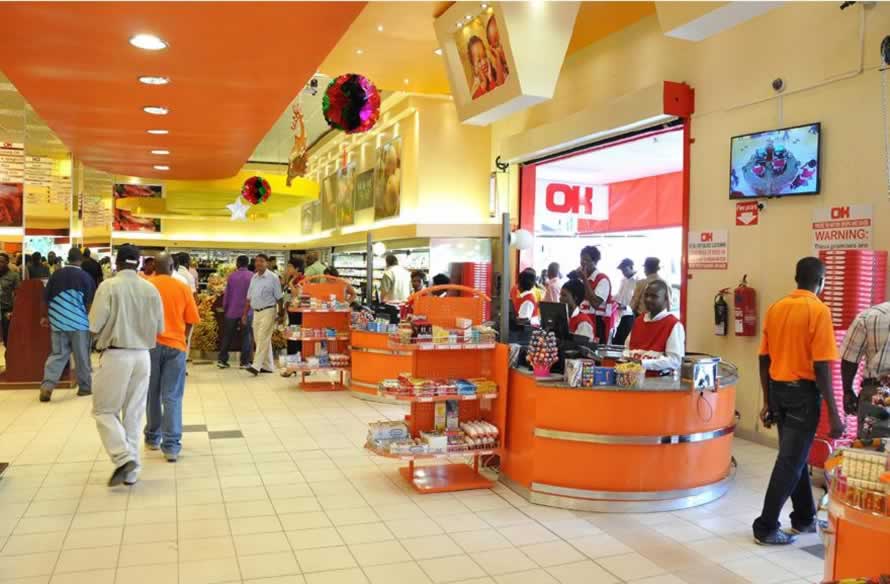
The Sunday Mail

Activity in retail stocks is expected to remain firm for the reminder of the year and in the short-term, driven by robust performances in the primary sectors of the economy — agriculture and mining.
While challenges may still persist in the economy, particularly with regards to shortages of foreign currency, retail and consumer stocks such as OK Zimbabwe, Simbisa, Delta, National Foods, BAT, Dairibord, Axia and Econet are expected to buck the trend.
Market watchers have noted an improvement in disposable incomes on the back of increased productivity in agriculture and small-scale mining.
Tobacco for instance, has surpassed last year’s production level while extension of Government’s Command Agriculture programme to include soya beans and livestock should see further growth for the sector which anchors the Zimbabwe economy.
Policies such as the SI 64, which limits importation of goods that can be produced locally, together with salary increases for civil servants, should further boost local production and the retail sector.
Food is arguably the most significant component of the sector, accounting for an estimated 34 percent of annual consumption expenditure compared to South Africa at 19 percent or the United Kingdom at 10 percent.
Staples, particularly maize meal, bread and sugar are the most popular food items.
Therefore OK Zimbabwe, National Foods, Dairibord, Innscor and Simbisa are well-placed to cash in while local procurement of food items will further boost the sector.
“We expect food and groceries to be mainly sourced in the formal market, with growth in low-income segments, which is dominated by OK Zimbabwe, commanding an estimated over 30 percent market share, as we anticipate the liquidity crisis to persist,” said brokerage firm IH Securities.
OK Zim is also expected to benefit from servicing the lower end market through their lower margins offerings, while it also leverages on its market dominance and highly price competitiveness, compared to its peers.
Already, OK Zim and Axia have posted record high growth in earnings in the 2017/18 financial year ends which IH Securities say could be attributed to a significant migration of informal business to the formal sector, as the financial sector has become highly financially inclusive in the advent of cash shortages.
National Foods on the other hand is well positioned to service the lower end consumer market, through the provision of low-margin, staple goods, which will benefit them in the face of low 2017/18 agricultural grain and cereal output.
For Delta, which dominates the beverages sector, lager beer volumes recorded the highest growth over the period as they rose 27 percent as a result of consumers moving up the product chain, implying improved disposable incomes.
At least 13 percent of total annual consumption and 10 percent of consumers’ incomes are spent on beer every year.
Although Delta has been battling foreign currency problems, which resulted in challenges procuring essential raw materials for packaging, analysts still contend that the beverages giant has the economies of scale and distribution to maintain significant but lower market share.
Food and dairy processor, Dairibord, has already benefited from import restrictions and is anticipated to maintain the momentum as demand continues.
“The focus relates to improving product supply for key volume drivers to meet demand, improving process efficiencies along the value chain, and focusing on exports to improve the company’s forex generation capacity.
“We anticipate that competition will remain intense. Prices are however likely to remain relatively stable to slightly firm given the inflationary environment as the company continues to benefit from higher prices on restricted items,” said IH Securities.
On the tobacco side, BAT has managed to maintain its market share as consumers remain loyal to their brands.
It is estimated that 21 percent of Zimbabwean men and less than 1 percent of women smoke cigarettes with average daily consumption at 10 million sticks per day.
For BAT, strong performance has been driven by volumes increase, especially for low value money segments.
The firm dominates the market and is putting aggressive marketing to defend its territory in a sector consumers hardly substitute cigarettes for alternative tobacco products.
On specialty retail, furniture, household equipment and maintenance contribute 9,9 percent of the 495 products in the consumer price basket.
Despite presence of grey imports on the market, credit offerings against cash shortages allow Axia to have a significant market share. The persistent cash shortages and growth in plastic money is seen continuing in the short to medium term, which should work in Econet’s favour through its financial services segment, Steward Bank and Ecocash.






